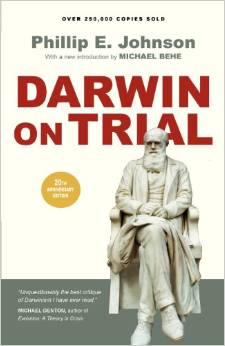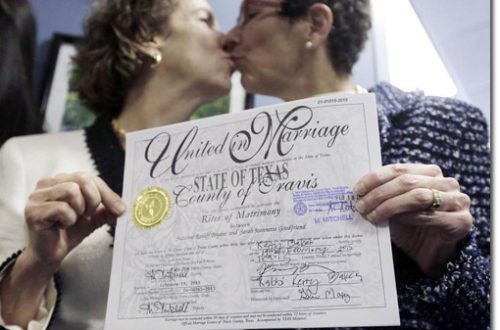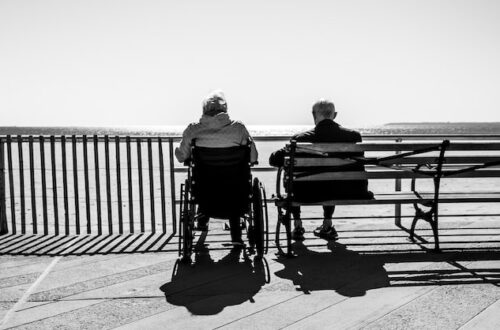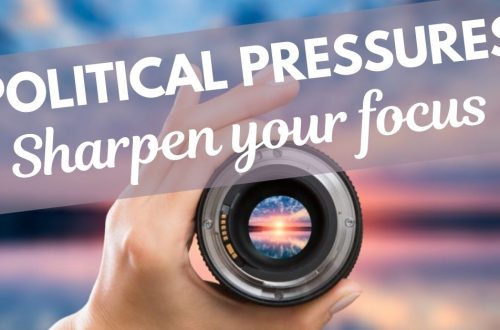
The Power of an Expert Speaking as a Fellow Traveler: Phillip Johnson
When my husband Jack was in seminary he was taught to speak as the expert from a posture of strength. If you talk about weakness, struggle or failure, speak in hindsight from the place of victory won. It’s not always safe to talk about your weaknesses. You don’t want to give your detractors or enemies ammunition. (Especially in churches.)
In today's culture that mindset is changing. But, If you are an expert, why would you want to try to speak as a fellow-traveler? What might be the benefits of exposing your weaknesses, speaking of your struggles, or even failures? In the academy? In churches? Phillip Johnson, the father of the Intelligent Design movement, mentored me and showed me, even in the wake of his devastating loss.
In 1991 Philip Johnson authored the book, Darwin on Trial. While he was not an expert in science, he was an expert in law. An expert’s expert. A Harvard undergrad, he graduated top of his class from the University of Chicago and clerked for US Supreme Court Chief Justice Earl Warren. As a Deputy District Attorney and then a law professor at University of California Berkeley for over thirty years he knew how to take an argument apart — exposing logical fallacies and hidden assumptions.
He began to examine Darwin' theory of evolution and found plenty of fallacies and assumptions which he set down in Darwin on Trial. Christianity Today numbers it among the top 40 books that have shaped evangelical Christian faith.
Johnson gathered together a "wedge" of scientists and mathematicians and challenged them: Focus all your intellectual firepower on answering one question “Do you need a Creator to do the creating, or can nature do it on its own?”.
For decades the Christian community had been entrenched in an “old Earth vs. young Earth” debate while the world ignored them both. Johnson reframed the debate as an argument of chance versus design. And the Intelligent Design movement was born. It made headlines in all the major media.
He shared his “wedge” strategy from prestigious platforms across the country: “You can start with, ‘In the beginning were the particles’ or ‘In the beginning God created the heavens and the Earth,’ Johnson would say, but you can't prove either one of them. They are both faith commitments.”
I first met Phil, as he liked to be called, at the Veritas Forum at the University of Texas in Austin in 1997. He debated Darwinian evolution with Nobel laureate Steven Weinberg on the main campus and the basis of law with constitutional law professor Leno Graglia at the law school. In my humble opinion he won both arguments, always treating his opponents with respect and good humor.
Then, in 2001 he suffered a debilitating right brain stroke. Why God? I wondered; we have so few champions.
The thing is, God cared more about capturing Phil’s heart then he did about supplying champions who would defend him. And Phil cared less about speaking as an expert in his 2002 book The Right Questions, than he did about speaking as a fellow traveler pointing to the glory of God in his weakness.
He wrote, “In the early days of my stroke recovery, when my worst fear seemed a present reality, we prayed in my hospital room. Our friend Kate sang a simple hymn: "On Christ the solid rock I stand; all other ground is sinking sand."
“I could think of nothing but the man described in the Sermon on the Mount. I built a house, and in some respects it was a very good house, but it was not thoroughly anchored in the rock. I knew the importance of asking the right questions, such as “How solid is my foundation?” Too often, however, I had been distracted by the wrong questions, such as “How can I make the house look impressive so the neighbors will admire it?”
“The storm came and shook the foundation.
“I had always prided myself on being self-reliant, and my brain was what I had relied on. Now the self with its brain was exposed as the shaky instrument it had always been. I was a Christian, but now all the smoke was blown away and I knew myself to be not so much a believer in Christ as a skeptic about everything else, a recovering rationalist who had lost his faith in the world's definition of reason but who knew only the world's Jesus.
“I had to decide then and for eternity where my hope was based, or whether I had any. As Kate finished her song, I knew that I had found solid rock and that I was already standing on it. I recalled the familiar words of the twenty-third Psalm: "Yea, though I walk through the valley of the shadow of death, I will fear no evil: for Thou art with me." I told my wife, "To me that has always been just a beautiful poem, but now I know what it means." I had walked through the valley of the shadow of death, and that psalm was now my own story.
“Lord, I believe; please help my unbelief! That juxtaposition is not paradoxical to those who have been there. Despite the way my brain was affected by the stroke, I was clearer than ever that there is a source from which our reasoning powers derive, and it is far more trustworthy than the movements of molecules.”
I remember reading The Right Questions in 2002 and being blown away by this confession smack in the middle of Phil's tightly reasoned arguments. When an expert speaks as a fellow traveler it is incredibly powerful. We don't expect that someone with such expertise would be that transparent and humbly acknowledge their pride.
In our postmodern culture people are weary and skeptical of hype and spin. With so many competing truth claims they are suspect of an expert's truth claims. They don't want to just know what you know, they want to experience what you've experienced. So speaking as a fellow traveler draws them into that experience with greater impact.
Speaking as a fellow traveler builds trust. We tend not to trust people who speak from the ivory tower and seem to have perfect lives. We know that none of us have perfect lives, no matter how smart we are. So it builds trust to admit it and let people in.
We may think that speaking as a fellow traveler undermines our authority, but just the opposite is true. When we are vulnerable and real and share our struggles it builds a heart connection. God has created us with minds and hearts. If we offer others the insights of our minds and share what is really going on at the heart level too, it builds a very holistic and stronger connection than when we just offer our intellectual expertise.
It doesn't have to be a soap opera tell-all. And we don't have to disclose all the details. God's Spirit can give us wisdom on how much to share and what words to use. No one would read Phil's confession above and not recognize his thoughtful, articulate voice. However, the power of this passage does not reside in his intellect, but in his courage to reveal his heart.
You may not be a lawyer or a pastor but you no doubt want to influence others. Don't neglect the power of sharing your own story, especially your story with God.
Personal PS: I also had a book published in September 2002, Pilgrims Progress Today: Christian’s Quest through the Modern World. It wrapped the basic ideas of a Christian worldview into a retelling of Bunyan's classic tale. Since it wove a courtroom case into the Vanity Fair chapter, I sent a copy of the book to Phil, asking for his endorsement.
Not only did he endorse it, but he graciously invited me and six others to form what he hoped would be a second “wedge” of like-minded writers and teachers who could share our ideas and plans and faith for “mutual instruction and encouragement.” With vulnerability and vision he challenged us: “…Age and a stroke have made me more, not less, radical and determined. Great changes are upon us, and this signifies both dangers and opportunities.
"I do not wish to lead any organization or dominate any situation, but only to stimulate others to rise to the challenge. Most particularly, I want to spur the best churches, ministers, and lay leaders to see that the worldview issues are not optional but essential, and to understand that they have an unprecedented opportunity to witness and teach effectively for foundational truth if only they will seize it.” That challenge has been a banner over my ministry.
More joined our "wedge." We emailed and conferenced and spurred each other on. A cultural “wedge” was much more diffuse than a scientific “wedge.” Challenging the culture is much harder than challenging the scientific paradigm. So we did not accomplish nearly what the first “wedge” accomplished. The best book that may have benefited from our iron-sharpening-iron discussions was Nancy Pearcey’s Saving Leonardo: A Call To Resist the Secular Assault on the Mind, Meaning and Morals.
I will always be indebted to Phil's help. He volunteered to be the second guest on our radio show The Things That Matter Most. Nancy, John Mark Reynolds, Ben Wiker, Frederica Matthewes-Green, Mark Jacobs and other second wedge colleagues also joined us on the radio. Phil and many others contributed to my book Faith and Culture: The Guide to a Culture Shaped by Faith. Their expertise and friendship strengthened my soul and my platform beyond telling.
Phil still enjoys reading our emails and we enjoy reading news from him. The heart connection remains even as the teaching/mentoring expertise fades. Perhaps that is the best reason to speak as a fellow traveler. “Where there is knowledge, it will pass away." But, “love never fails" (1 Cor 13:8).



